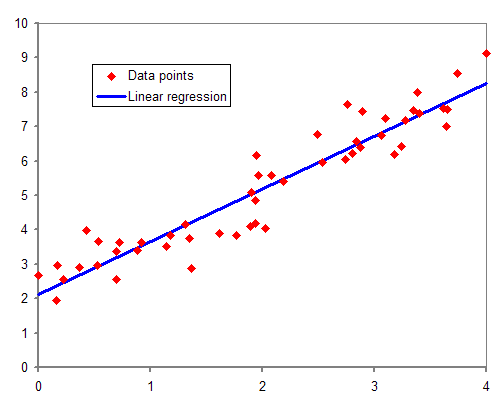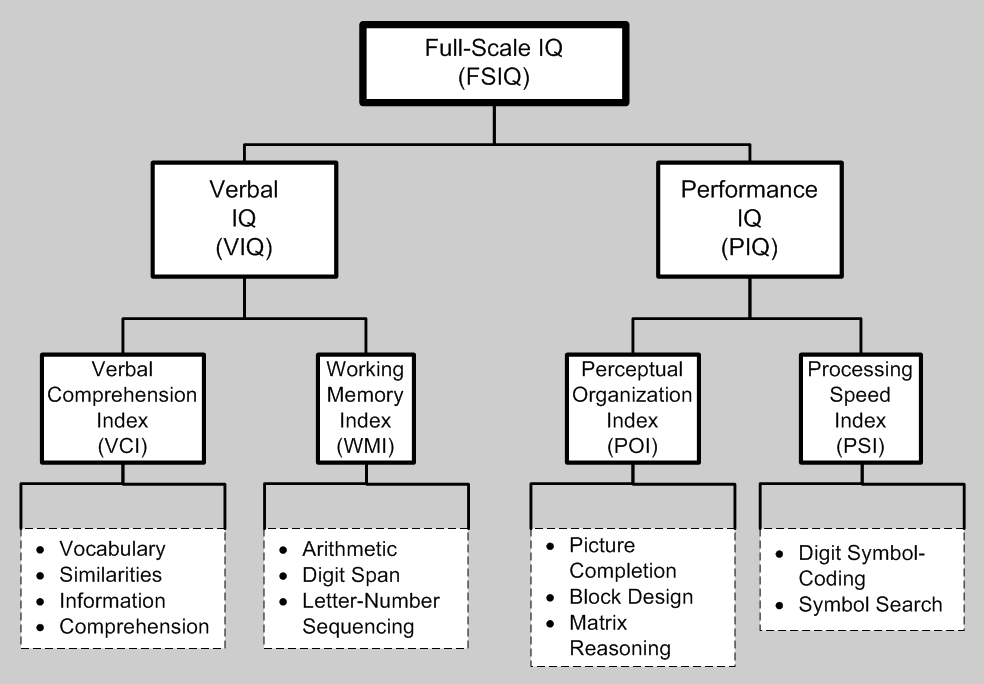|
Hold Test
Hold tests are neuropsychological tests which measure abilities which are thought to be largely resistant to cognitive decline following neurological damage. As a result, these tests are widely used for estimating premorbid intelligence in conditions such as dementia, traumatic brain injury, and stroke. Usage In neuropsychological assessment it is important to be able to accurately estimate premorbid intelligence. Accurate estimation allows the quantification of the impacts of neurological damage or decline, when compared to tests of current intelligence. The magnitude of decline is important for prognosis, rehabilitation planning and financial compensation. Hold tests used Hold tests typically measure crystallised intelligence, that is stored knowledge and skills, such as vocabulary and pronunciation. Of course, hold tests of abilities directly affected by neurological damage are likely to underestimate intelligence. For example, using reading tests in patients with aphasia. Ex ... [...More Info...] [...Related Items...] OR: [Wikipedia] [Google] [Baidu] |
Neuropsychological Test
Neuropsychological tests are specifically designed tasks that are used to measure a psychological function known to be linked to a particular brain structure or pathway. Tests are used for research into brain function and in a clinical setting for the diagnosis of deficits. They usually involve the systematic administration of clearly defined procedures in a formal environment. Neuropsychological tests are typically administered to a single person working with an examiner in a quiet office environment, free from distractions. As such, it can be argued that neuropsychological tests at times offer an estimate of a person's peak level of cognitive performance. Neuropsychological tests are a core component of the process of conducting neuropsychological assessment, along with personal, interpersonal and contextual factors. Most neuropsychological tests in current use are based on traditional psychometric theory. In this model, a person's raw score on a test is compared to a large gen ... [...More Info...] [...Related Items...] OR: [Wikipedia] [Google] [Baidu] |
National Adult Reading Test
The National Adult Reading Test (NART) is a widely accepted and commonly used method in clinical settings for estimating premorbid intelligence levels of English-speaking patients with dementia in neuropsychological research and practice. Such tests are called hold tests as these abilities are thought to be spared, or "held" following neurological injury or decline. The NART was developed by Hazel Nelson in the 1980s in Britain and published in 1982. The test comprises 50 written words in British English which all have irregular spellings (e.g. "aisle"), so as to test the participant's vocabulary rather than their ability to apply regular pronunciation rules. The manual includes equations for converting NART scores to predicted IQ scores on the Wechsler Adult Intelligence Scale. The NART is widely used in research settings because a measure of premorbid intelligence is rarely available. However, the Lothian Birth Cohort Study has such data. Researchers from this study demonstra ... [...More Info...] [...Related Items...] OR: [Wikipedia] [Google] [Baidu] |
Clinical Neuropsychology
Clinical neuropsychology is a sub-field of psychology concerned with the applied science of brain-behaviour relationships. Clinical neuropsychologists use this knowledge in the assessment, diagnosis, treatment, and or rehabilitation of patients across the lifespan with neurological, medical, neurodevelopmental and psychiatric conditions, as well as other cognitive and learning disorders. The branch of neuropsychology associated with children and young people is pediatric neuropsychology. Clinical neuropsychology is a specialized form of clinical psychology. Strict rules are in place to maintain evidence as a focal point of treatment and research within clinical neuropsychology. The assessment and rehabilitation of neuropsychopathologies is the focus for a clinical neuropsychologist. A clinical neuropsychologist must be able to determine whether a symptom(s) may be caused by an injury to the head through interviewing a patient in order to determine what actions should be taken to ... [...More Info...] [...Related Items...] OR: [Wikipedia] [Google] [Baidu] |
Multiple Regression
In statistical modeling, regression analysis is a set of statistical processes for Estimation theory, estimating the relationships between a dependent variable (often called the 'outcome' or 'response' variable, or a 'label' in machine learning parlance) and one or more independent variables (often called 'predictors', 'covariates', 'explanatory variables' or 'features'). The most common form of regression analysis is linear regression, in which one finds the line (or a more complex linear combination) that most closely fits the data according to a specific mathematical criterion. For example, the method of ordinary least squares computes the unique line (or hyperplane) that minimizes the sum of squared differences between the true data and that line (or hyperplane). For specific mathematical reasons (see linear regression), this allows the researcher to estimate the conditional expectation (or population average value) of the dependent variable when the independent variables take ... [...More Info...] [...Related Items...] OR: [Wikipedia] [Google] [Baidu] |
Neuropsychologist
Neuropsychology is a branch of psychology concerned with how a person's cognition and behavior are related to the brain and the rest of the nervous system. Professionals in this branch of psychology often focus on how injuries or illnesses of the brain affect cognitive and behavioral functions. It is both an experimental and clinical field of psychology, thus aiming to understand how behavior and cognition are influenced by brain function and concerned with the diagnosis and treatment of behavioral and cognitive effects of neurological disorders. Whereas classical neurology focuses on the pathology of the nervous system and classical psychology is largely divorced from it, neuropsychology seeks to discover how the brain correlates with the mind through the study of neurological patients. It thus shares concepts and concerns with neuropsychiatry and with behavioral neurology in general. The term ''neuropsychology'' has been applied to lesion studies in humans and animals. It h ... [...More Info...] [...Related Items...] OR: [Wikipedia] [Google] [Baidu] |
Wide Range Achievement Test
The Wide Range Achievement Test, currently in its fifth edition (WRAT5), is an achievement test which measures an individual's ability to read words, comprehend sentences, spell, and compute solutions to math problems.Wilkinson, G. S., & Robertson, G. J. (2017). ''Wide Range Achievement Test professional manual (5th edition)''. Bloomington, MN: NCS Pearson, Inc.. The test is appropriate for individuals aged 5 years through adult. The WRAT5 provides two equivalent forms (Blue and Green), which enables retesting within short periods of time without potential practice effects that occur from repeating the same items. The alternate forms also may be administered together in a single examination. The test was developed in 1941 by psychologists Sidney W. Bijou and Joseph Jastak.Reynolds, Cecil R.; and Fletcher-Janzen, Elaine"Encyclopedia of special education" p. 248. John Wiley & Sons, 2007. . Accessed July 23, 2009. The test series was first published in 1946 and has historically bee ... [...More Info...] [...Related Items...] OR: [Wikipedia] [Google] [Baidu] |
Wechsler Test Of Adult Reading
The Wechsler Test of Adult Reading (WTAR) is a neuropsychological assessment tool used to provide a measure of premorbid intelligence, the degree of Intellectual function prior to the onset of illness or disease.Holdnack, H.A. (2001). Wechsler Test of Adult Reading: WTAR. San Antonio. The Psychological Corporation Test Design Developed for use with English-speaking patients aged 16 to 89 years, WTAR is a “hold” test, a type of neuropsychological test that relies on abilities thought to be unaffected by cognitive decline associated with neurological damage. In the design of WTAR, the demographic prediction tables were co-normed with the widely used Wechsler Adult Intelligence Scale (WAIS) and Wechsler Memory Scale (WMS). This gives it an advantage for comparative analyses on predicted and actual general intellectual and memory function over similar reading tests such as the National Adult Reading Test (NART), which do not share normative data sets with the other widely use ... [...More Info...] [...Related Items...] OR: [Wikipedia] [Google] [Baidu] |
Wechsler Adult Intelligence Scale
The Wechsler Adult Intelligence Scale (WAIS) is an IQ test designed to measure intelligence and cognitive ability in adults and older adolescents. The original WAIS (Form I) was published in February 1955 by David Wechsler, as a revision of the Wechsler–Bellevue Intelligence Scale, released in 1939. It is currently in its fourth edition (''WAIS-IV'') released in 2008 by Pearson, and is the most widely used IQ test, for both adults and older adolescents, in the world. History The WAIS is founded on Wechsler's definition of intelligence, which he defined as "... the global capacity of a person to act purposefully, to think rationally, and to deal effectively with his environment." He believed that intelligence was made up of specific elements that could be isolated, defined, and subsequently measured. However, these individual elements were not entirely independent, but were all interrelated. His argument, in other words, is that general intelligence is composed of various speci ... [...More Info...] [...Related Items...] OR: [Wikipedia] [Google] [Baidu] |
Aphasia
Aphasia is an inability to comprehend or formulate language because of damage to specific brain regions. The major causes are stroke and head trauma; prevalence is hard to determine but aphasia due to stroke is estimated to be 0.1–0.4% in the Global North. Aphasia can also be the result of brain tumors, brain infections, or neurodegenerative diseases (such as dementias). To be diagnosed with aphasia, a person's speech or language must be significantly impaired in one (or more) of the four aspects of communication following acquired brain injury. Alternatively, in the case of progressive aphasia, it must have significantly declined over a short period of time. The four aspects of communication are auditory comprehension, verbal expression, reading and writing, and functional communication. The difficulties of people with aphasia can range from occasional trouble finding words, to losing the ability to speak, read, or write; intelligence, however, is unaffected. Expressive lan ... [...More Info...] [...Related Items...] OR: [Wikipedia] [Google] [Baidu] |
Cognition
Cognition refers to "the mental action or process of acquiring knowledge and understanding through thought, experience, and the senses". It encompasses all aspects of intellectual functions and processes such as: perception, attention, thought, intelligence, the formation of knowledge, memory and working memory, judgment and evaluation, reasoning and computation, problem solving and decision making, comprehension and production of language. Imagination is also a cognitive process, it is considered as such because it involves thinking about possibilities. Cognitive processes use existing knowledge and discover new knowledge. Cognitive processes are analyzed from different perspectives within different contexts, notably in the fields of linguistics, musicology, anesthesia, neuroscience, psychiatry, psychology, education, philosophy, anthropology, biology, systemics, logic, and computer science. These and other approaches to the analysis of cognition (such as embodied cognition) ... [...More Info...] [...Related Items...] OR: [Wikipedia] [Google] [Baidu] |
Crystallised Intelligence
The concepts of fluid intelligence (''g''f) and crystallized intelligence (''g''c) were introduced in 1963 by the psychologist Raymond Cattell. According to Cattell's psychometrically-based theory, general intelligence (''g'') is subdivided into ''g''f and ''g''c. Fluid intelligence is the ability to solve novel reasoning problems and is correlated with a number of important skills such as comprehension, problem-solving, and learning. Crystallized intelligence, on the other hand, involves the ability to deduce secondary relational abstractions by applying previously learned primary relational abstractions. History Fluid and crystallized intelligence are constructs originally conceptualized by Raymond Cattell. The concepts of fluid and crystallized intelligence were further developed by Cattell and his former student John L. Horn. Fluid versus crystallized intelligence Fluid intelligence (''g''f) refers to basic processes of reasoning and other mental activities that depend ... [...More Info...] [...Related Items...] OR: [Wikipedia] [Google] [Baidu] |
Neuropsychological Assessment
Neuropsychological assessment was traditionally carried out to assess the extent of impairment to a particular skill and to attempt to determine the area of the brain which may have been damaged following brain injury or neurological illness. With the advent of neuroimaging techniques, location of space-occupying lesions can now be more accurately determined through this method, so the focus has now moved on to the assessment of cognition and behaviour, including examining the effects of any brain injury or neuropathological process that a person may have experienced. A core part of neuropsychological assessment is the administration of neuropsychological tests for the formal assessment of cognitive function, though neuropsychological testing is more than the administration and scoring of tests and screening tools. It is essential that neuropsychological assessment also include an evaluation of the person's mental status. This is especially true in assessment of Alzheimer's ... [...More Info...] [...Related Items...] OR: [Wikipedia] [Google] [Baidu] |



